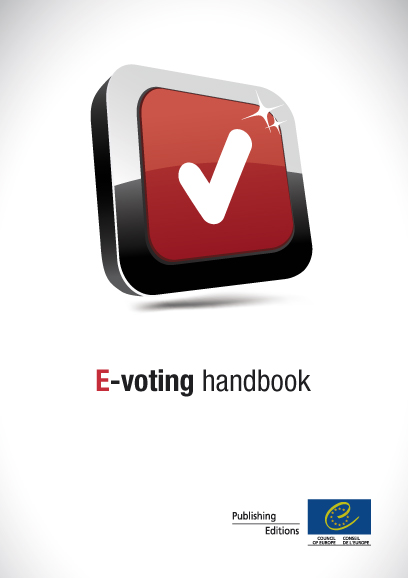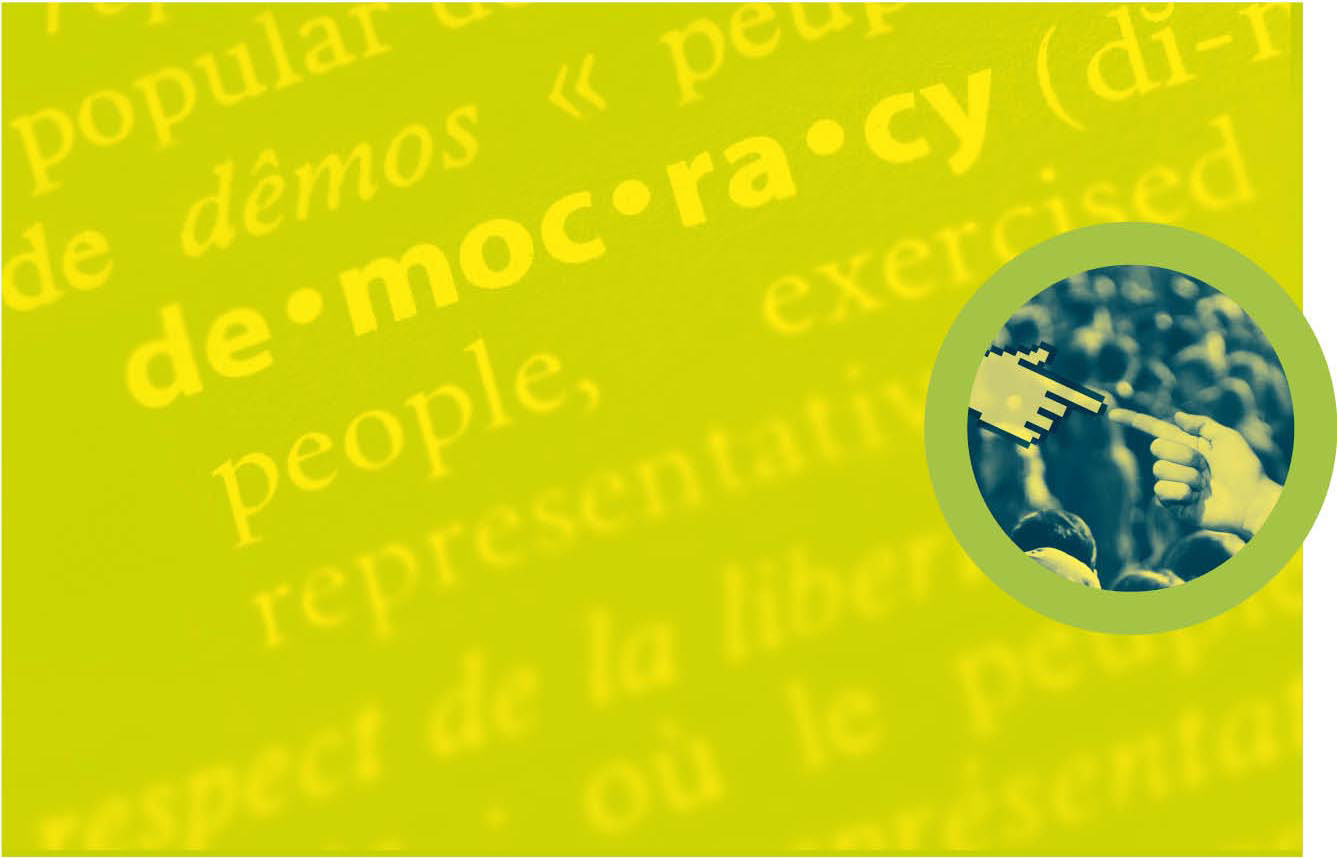|
The Good Governance in
the Information Society Project (2004 – 2010) has been focusing on
how new information and communication technologies (ICT) affect the
practice of democracy in Council of Europe member states. Its main
aim has been to provide governments and other stakeholders with
legal
instruments and practical tools in this field and to promote the
application of existing instruments and of good and innovatory
policy practice.
More..
Standards in the field of e-voting
 The Council of Europe's
Committee of Ministers'
Recommendation CM/Rec(2004)11 to member states on
legal, operational and technical standards for e-voting has become the main
international reference for ensuring democratic election standards
when e-voting is used. The Council of Europe's
Committee of Ministers'
Recommendation CM/Rec(2004)11 to member states on
legal, operational and technical standards for e-voting has become the main
international reference for ensuring democratic election standards
when e-voting is used.
The Council of Europe
held the
third edition (Strasbourg, 16-17 November 2010) in a series
of biennial review meetings to exchange experiences about remote and
non-remote e-voting in its member states. Its deliberations were
based on
Recommendation
Rec(2004)11 and of the conclusions of the
2008 review meeting (Madrid, November 2008). The meeting also
discussed guidelines on certification of e-voting systems and on
transparency of e-enabled elections were presented and discussed at
this meeting.
In addition, the “E-voting
Handbook", key steps in the implementation of e-enabled elections”,
was presented. This handbook should assist governments and
organisations in their considerations whether or not to conduct
e-voting pilot schemes or to make e-voting a feature of their
electoral system.
(More ...)
Standards in the field of e-democracy
 The
Recommendation on e-democracy
(CM/Rec(2009)1), prepared by the Council of Europe’s Ad Hoc
Committee on e-democracy (CAHDE) and adopted by the Committee of
Ministers in February 2009, offers all European governments and
other interested stakeholders substantial guidelines and principles
when dealing with e-democracy. Alongside an explanatory memorandum,
the Recommendation is accompanied by a number of practical tools
providing information on using ICT for democratic
processes. The
Recommendation on e-democracy
(CM/Rec(2009)1), prepared by the Council of Europe’s Ad Hoc
Committee on e-democracy (CAHDE) and adopted by the Committee of
Ministers in February 2009, offers all European governments and
other interested stakeholders substantial guidelines and principles
when dealing with e-democracy. Alongside an explanatory memorandum,
the Recommendation is accompanied by a number of practical tools
providing information on using ICT for democratic
processes.
In order to raise
awareness about the potential of e-democracy, the Council of Europe
has developed a portable exhibition on electronic democracy which
has been shown since September 2009 at several events at the Council
of Europe and elsewhere.
More ..
Regulatory action in the field of internet Governance
IGF/WSIS

In the framework of the
UN Internet Governance Forum (IGF), in 2007 the Council of Europe, the United Nations Economic
Commission for Europe (UNECE) and the Association for Progressive
Communications (APC) launched a joint initiative on “Public Participation in
Internet Governance”. The objective of this initiative is to propose
a code of good practice on information participation and
transparency in internet governance that may be considered by major
internet governance entities. During the past year, the draft code
has been explored with various internet governance (IG) entities
such as ICANN, regional and national IG fora, and ISOC. A workshop
at the fifth IGF in Vilnius/Lithuania (14-17 September 2010)
provided an opportunity to discuss the practical aspects of applying
a draft code of good practice and to hear from members of the wider
internet community on their experiences and suggestions. These
discussions had been initiated at WSIS 2005 in Tunis. The Council of
Europe had already been involved in WSIS since the preparatory phase
to WSIS 2003 in
Geneva.
More...
| 

 Print
Print  Send
Send  FRANCAIS
FRANCAIS 
 The
The



